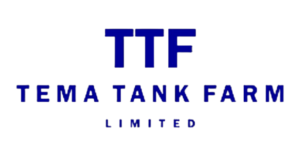The presentation of the 2026 Budget Statement and Economic Policy by Finance Minister Dr. Cassiel Ato Forson delivered a significant and immediate boost to the private sector and household budgets, headlined by a comprehensive overhaul of the nation’s Value Added Tax (VAT) regime
The most anticipated and celebrated measure is the abolition of the COVID-19 Health Recovery Levy, a pandemic-era tax that has burdened consumers and businesses since its introduction.
The GH₵3.7 Billion Relief Anchor
The government’s decision to scrap the levy is explicitly positioned as a powerful
Speaking before the Parliament, the Finance Minister confirmed the direct financial impact of this single reform:
“Mr. Speaker, by abolishing the COVID-19 levy, Government is putting GH₵3.7 billion in the pockets of individuals and businesses in 2026 alone.”
This substantial injection of GH₵3.7 billion back into the economy is designed to increase household disposable income and reduce the operating costs for businesses, thereby supporting job retention and market liquidity.
Five Major VAT Reforms Announced
The abolishment of the COVID-19 Levy is part of a sweeping package of new VAT reforms designed to rationalize the tax system and reduce the overall burden. In total, the reforms are expected to provide a financial benefit of GH₵5.7 billion to the private sector and consumers.
“Mr. Speaker, all together, the VAT reforms is expected to give back GH₵5.7 billion to businesses and households.”
The critical reforms, outlined by the Minister, include:
- Abolishment of the COVID-19 Health Recovery Levy: Puts GH₵3.7 billion back into the economy.
- Input Tax Deductions on Levies: The government will abolish the decoupling of the GETFund and NHIL levies from the VAT tax base, allowing businesses to claim input tax deductions on both levies. This is projected to deliver a significant reduction in operating expenses: “Mr. Speaker, these reforms will also reduce the cost of doing business by 5 percent result of subjecting the GETFund and NHIL levies to input-output deductibility.”
- Reduced Effective VAT Rate: The overall effective VAT rate will be reduced from 21.9% to 20%, providing a marginal but important reduction in the cost of goods and services.
- Raised Registration Threshold: The VAT registration threshold will be significantly raised from GH¢200,000 to GH¢750,000. This massive increase aims to formalize and bring financial relief to thousands of small and medium-sized enterprises (SMEs).
- Targeted Industry Relief: The government will abolish VAT on reconnaissance and prospecting of minerals, encouraging investment in the upstream resource sector. Furthermore, the VAT zero-rating on the supply of locally manufactured textiles will be extended to 2028, ensuring continued protection and growth for the domestic textile industry.
The comprehensive VAT package marks a definitive attempt to stimulate growth and ease the economic pressures felt by Ghanaians following years of fiscal consolidation.




































